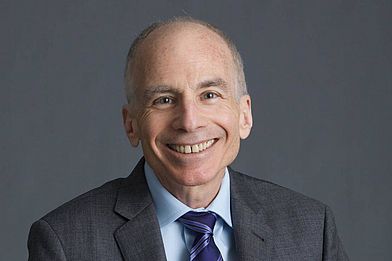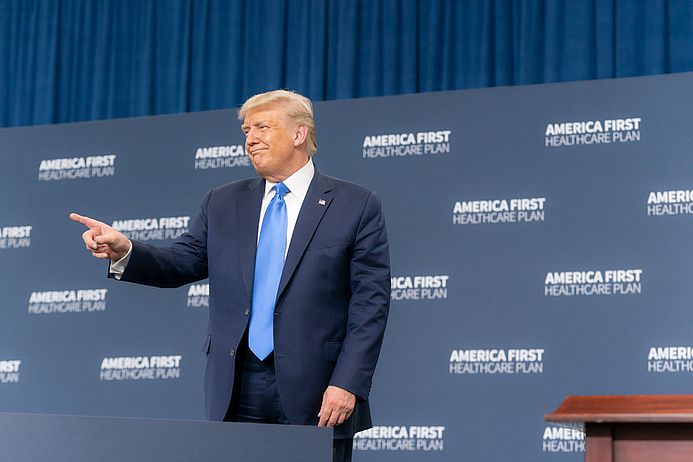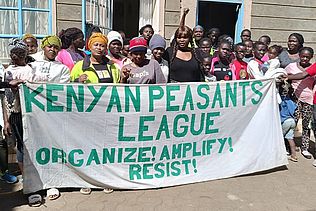In every major global health milestone in our lifetimes, the United States has been at the forefront—from smallpox eradication in 1980 and the ongoing polio eradication campaign to the AIDS pandemic and more recent global health emergencies like SARS, Zika, Ebola, and mpox.
But a second Trump term puts all that at risk. Trump’s core values are the antithesis of the values that animate global health—international cooperation, mutual solidarity, and international diplomacy. He has open hostility toward international institutions such as the World Health Organization (WHO) and legal norms like the International Health Regulations and the Pandemic Treaty. In a second Trump term, the United States is likely to retreat from global health institutions, agreements, and financing—all with vast implications for health, particularly for the world’s most vulnerable populations.
Defunding WHO
During his first term, President Trump actively undermined WHO, even falsely accusing the agency of favoring China. At the height of the COVID-19 pandemic in 2020, Trump formally registered his intention to withdraw from WHO, giving the UN Secretary-General one year’s notice as required under US law. President Biden reversed that decision, maintaining a lifeline of solidarity and funding. Now, Trump is likely to withdraw from WHO, and he has four years to do so. While some Republicans in Congress consider US leadership in WHO important, Project 2025 recommends full withdrawal from the agency.
That would be disastrous. Under its Constitution, WHO is the directing and coordinating authority on international health work. The United States is WHO’s largest Member State funder, second overall only to the Gates Foundation. US contributions (mandatory and voluntary) represent 12.5% of WHO’s total funding. Without US funding, or with “greater restrictions on” as Project 2025 calls for, WHO’s programming would be hollowed out, endangering health worldwide.
Pandemic Treaty about to fail
Governments are in the final stages of negotiating a Pandemic Treaty, but the US election has placed a pall on negotiations in Geneva. Governments have been quietly seeking to finalize the treaty before the presidential inauguration. But it looks like that will fail, and that Trump may torpedo negotiations. Trump’s allies are adamantly opposed to the Agreement, and have stoked disinformation that it would cede US sovereignty. Should the United States scuttle or step back from the talks, or from WHO itself, treaty negotiations may collapse, including financing for building health capacities and ending unconscionable inequities, which were so tragically evident during the COVID-19 pandemic.
Cuts in Global US Health Funding
Foreign health assistance has become an extension of US soft power, historically garnering bipartisan support. The United States is the largest funder of global health through bilateral and multilateral assistance, and international institutions like the Global Fund to Fight AIDS, Tuberculosis and Malaria (Global Fund, representing 36% of its total funding), Gavi, the Vaccine Alliance (over 22% for the 2021-2025 period). The United States contributed over $20 billion in development assistance for health in 2023, representing over 40% of all such assistance.
US spending on global health has become increasingly politicized. Trump’s budget proposal for fiscal year 2018 would have cut global health spending by $2.5 billion (23%) were it not for bipartisan congressional support. Now, with Republican control of both houses of Congress, foreign assistance is seriously threatened, and at a time when global health institutions are seeking unprecedented levels of funding.
Reauthorization of the President’s Emergency Plan for AIDS Relief (PEPFAR) is also uncertain. PEPFAR has saved millions of lives. Since its inception, Congress has invested $120 billion in PEPFAR and allocated $6.5 billion this year. However, reauthorization has succumbed to the worst possible partisan politics, with Trump allies raising false claims that PEPFAR supports abortion services. Last year, Congress reauthorized PEPFAR until March 25, 2025. But Republicans are likely to make reauthorization conditional on inserting anti-abortion language.
Backlash on Sexual and Reproductive Health
President Trump has taken credit for overturning Roe v. Wade, and Project 2025 outlines a suite of policy options limiting sexual and reproductive health and rights further. Now Trump is likely to threaten these freedoms beyond the United States. Experts are “almost certain” he will slash funding for the UN Population Fund (UNFPA), the UN agency that promotes sexual and reproductive health. Republican presidents since Reagan have cut funding to UNFPA, but the agency stands to lose more than double the amount cut during Trump’s first term (over $160 million).
The United States is likely to reinstate an expanded global gag rule, withholding health aid from non-US organizations providing abortion-related services, even simply referrals. Beginning with Reagan, Republican presidents have applied this rule to family planning-related funding. But the first Trump administration expanded the domestic gag rule to include all US global health assistance, resulting in organizations restricting and ending reproductive health services. Project 2025 extols faith-based organizations and calls for increased USAID collaboration with them. Trump is also likely to nominate envoys and ambassadors to conduct US foreign policy hostile to sexual and reproductive rights. Project 2025 calls on UN agencies to remove all language promoting abortion from all UN documents, risking sexual and reproductive rights globally – or, if the UN does not relent, then endangering UN funding.
Climate Change will endanger Health even more
Following another year of record-breaking heat and extreme weather events, the UN’s weather agency issued a Red Alert on the rapid pace of climate change, turbo-charged by mounting greenhouse gas levels. But Trump promises to “drill, baby, drill.” During his presidency, Trump withdrew from the Paris Agreement, slashed the EPA’s budget and installed loyalists, opened more federal land to oil and gas exploration, and weakened clean air standards. The administration ultimately rolled back more than 100 environmental rules, giving preference to the fossil fuel industry.
Upon reentering office, Trump has pledged to withdraw from the 1992 UN Framework Convention on Climate Change, the Paris Agreement’s parent Convention. Trump also promises to repeal the now landmark Inflation Reduction Act, although he may face political headwinds as investments have gone largely to Republican-held congressional districts.
All this will reverse or slow reductions in US greenhouse gas emissions. The impacts will reverberate worldwide, with developing countries facing the brunt. A slower US clean energy transition, along with severe reductions in climate financing, is also likely to lead other big polluter countries to slow their own transitions – further exacerbating climate change and its health impacts.
Global Reach of Federal Agencies
Trump’s domestic policy will have a profound bearing on global health. He has promised the keys to critical health agencies to Robert F. Kennedy Jr. – a science skeptic and staunch anti-vaxxer, telling Kennedy he could “go wild on health…go wild on food…go wild on medicines.” Kennedy has spent his career undermining public trust in science and pushing baseless conspiracy theories that contradict decades of medical research, including that vaccines cause autism. The Trump administration will likely reduce the scope, mission, and financing of health agencies, with the CDC (Center for Disease Control and Prevention) bearing the brunt. CDC plays a critical role in global health security. With a network in more than 65 countries, CDC provides funding and logistical support, field training, and emergency response. CDC’s experts in epidemiology, data collection, and disease surveillance are world class.
Project 2025 proposes to split the CDC into two agencies: one on health data collection, the other for “limited” public health recommendations. These plans would significantly reduce the CDC’s ability to prevent and control health threats, while also hindering cooperation in data-sharing, tracking, and containing outbreaks with global partners. Although a complete restructuring may require congressional approval, many within Trump’s inner circle believe the CDC should be massively scaled back. The loss of expertise, including the Division of Global Health Protection, will diminish progress in pandemic preparedness and disease eradication.
The global health community is bracing for the impact of a second Trump administration. At stake is international cooperation, diplomacy, and trust. And on the losing end, as usual, are the world’s most vulnerable people. That is not a future that global health champions can tolerate.
In Collaboration with Alexandra Finch, Adi Radhakrishnan, Eric A. Friedman, Scholars at O’Neill Institute.
First published: Dez. 20, 2024, Milbank Quarterly.

Lawrence O. Gostin is University Professor in Global Health Law at Georgetown University, faculty director of the O’Neill Institute for National and Global Health Law, and director of the World Health Organization (WHO) Collaborating Center on Public Health Law and Human Rights.




